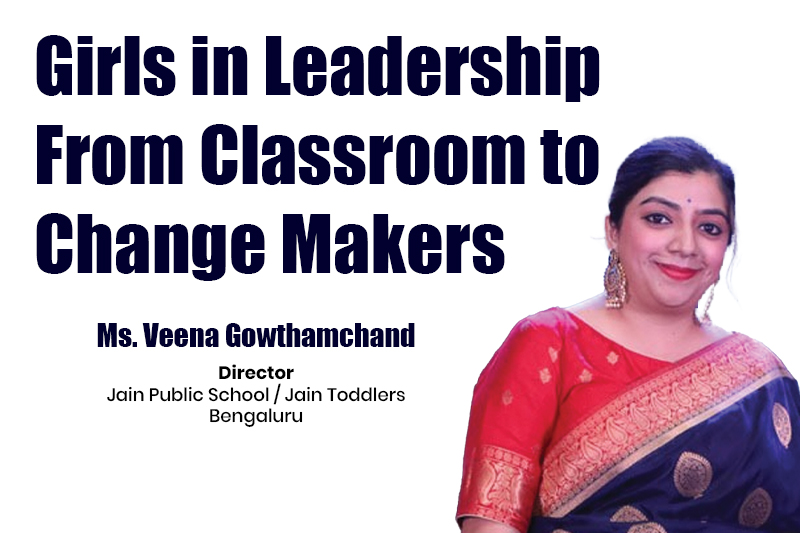The Evolving Role of Fathers in Modern Parenting: Beyond Traditional Norms
In the vibrant, ever-evolving landscape of modern parenting, fathers are no longer confined to the well-worn mold of the stoic breadwinner. Today’s dads are leaning in with intention—swapping briefcases for baby bottles, bedtime stories for boardrooms, and traditional detachment for genuine connection. This shift in modern fatherhood isn’t just about changing gender roles; it’s about reshaping the very foundation of what it means to be a parent.
From diaper duty to emotional development, involved dads are proving that love, commitment, and presence are not gender-bound traits—they are human ones. As more fathers take center stage in their children's lives, a new model of fatherhood is emerging: one rooted in empathy, partnership, and purpose.
In today’s families, dads in modern families are just as likely to be found braiding hair, packing school lunches, and pacing the floor with a teething toddler at 2 a.m. This evolution is not anecdotal—it’s measurable. According to the Pew Research Center, the time fathers spend on child care has tripled since 1965.
This change reflects a growing societal recognition that parenting beyond gender roles is not only possible—it’s essential. The emphasis has shifted from “what fathers provide” to “how fathers connect.” Parenting roles in modern families have become less about rigid definitions and more about relationships, and dads are rising to the occasion.
According to the U.S. Department of Health and Human Services, children with involved fathers are:
Studies show that new fathers experience hormonal changes when they become caregivers. Levels of oxytocin, the hormone associated with bonding, increase during interactions with infants. Testosterone levels may decline slightly to promote nurturing behavior and emotional responsiveness.
This isn’t just biology—it’s psychology. Fathers who are deeply involved in parenting often report higher life satisfaction, greater emotional depth, and stronger mental well-being. Fatherhood in modern society doesn’t just change your schedule—it can transform your identity, softening rigid definitions of masculinity and cultivating traits like patience, emotional intelligence, and compassion.
According to the U.S. Census Bureau, more than 2.5 million single fathers are raising children in the United States today—a nearly ninefold increase since 1960. These men are not just "doing their best"—they're thriving. From attending parent-teacher conferences to managing household responsibilities and comforting children through emotional ups and downs, stay-at-home dads and single fathers are challenging the outdated belief that nurturing is inherently maternal.
Despite often receiving less social support and facing greater societal skepticism, many single fathers report high engagement and deep fulfillment in their parenting roles. They serve as powerful reminders that caregiving is a human responsibility, not a gendered one.
A landmark 2010 study by the American Academy of Pediatrics found no significant developmental differences between children raised by same-sex versus opposite-sex parents. In fact, children of gay fathers often benefit from highly intentional parenting, due to the planning and perseverance required to become a parent outside of traditional routes.
Still, challenges persist. Gay fathers frequently face legal barriers, social stigma, and unequal access to parental leave. But their presence and success are breaking fatherhood stereotypes, proving that the ability to raise confident, healthy, and well-adjusted children isn’t about sexual orientation—it’s about love, dedication, and involvement.
This is more than just a trend—it’s a cultural transformation. Research confirms what lived experience already tells us: when fathers are emotionally present and actively involved, children thrive. And so do families.
The future of parenting isn’t about returning to outdated norms—it’s about expanding them. It’s about building families rooted in love, empathy, and mutual respect—regardless of gender.
The evolving role of fathers is one of the most important stories of our time. And as this story continues to unfold, one thing becomes clear: the modern father isn’t just helping raise the next generation—he’s helping reshape the very meaning of parenthood.
From diaper duty to emotional development, involved dads are proving that love, commitment, and presence are not gender-bound traits—they are human ones. As more fathers take center stage in their children's lives, a new model of fatherhood is emerging: one rooted in empathy, partnership, and purpose.
Redefining Fatherhood: From Provider to Parent
For generations, a father's identity in the family was tied closely to his role as a provider and protector. Emotional support and caregiving were considered maternal domains, reinforced by culture, policy, and tradition. But this model, grounded in rigid gender expectations, is becoming increasingly outdated.In today’s families, dads in modern families are just as likely to be found braiding hair, packing school lunches, and pacing the floor with a teething toddler at 2 a.m. This evolution is not anecdotal—it’s measurable. According to the Pew Research Center, the time fathers spend on child care has tripled since 1965.
This change reflects a growing societal recognition that parenting beyond gender roles is not only possible—it’s essential. The emphasis has shifted from “what fathers provide” to “how fathers connect.” Parenting roles in modern families have become less about rigid definitions and more about relationships, and dads are rising to the occasion.
The Power of Presence: Why Engaged Fathers Matter
An involved father isn’t just a moral victory for equality—it’s a developmental asset for children. Research consistently affirms that children with actively engaged dads enjoy a wide range of benefits.According to the U.S. Department of Health and Human Services, children with involved fathers are:
- 39% more likely to earn mostly A’s in school
- 45% less likely to repeat a grade
- 60% less likely to be suspended or expelled
- More emotionally regulated and socially competent
Fatherhood is Biological—And Emotional
Contrary to old stereotypes, men aren’t biologically indifferent to nurturing. In fact, science tells a different story.Studies show that new fathers experience hormonal changes when they become caregivers. Levels of oxytocin, the hormone associated with bonding, increase during interactions with infants. Testosterone levels may decline slightly to promote nurturing behavior and emotional responsiveness.
This isn’t just biology—it’s psychology. Fathers who are deeply involved in parenting often report higher life satisfaction, greater emotional depth, and stronger mental well-being. Fatherhood in modern society doesn’t just change your schedule—it can transform your identity, softening rigid definitions of masculinity and cultivating traits like patience, emotional intelligence, and compassion.
The Rise of the Single Father
Another significant evolution in the fatherhood narrative is the rise of single fathers who take on primary caregiving roles.According to the U.S. Census Bureau, more than 2.5 million single fathers are raising children in the United States today—a nearly ninefold increase since 1960. These men are not just "doing their best"—they're thriving. From attending parent-teacher conferences to managing household responsibilities and comforting children through emotional ups and downs, stay-at-home dads and single fathers are challenging the outdated belief that nurturing is inherently maternal.
Despite often receiving less social support and facing greater societal skepticism, many single fathers report high engagement and deep fulfillment in their parenting roles. They serve as powerful reminders that caregiving is a human responsibility, not a gendered one.
Gay Fatherhood: Challenging Norms, Creating New Legacies
As societal attitudes shift and family structures diversify, gay fatherhood has gained greater visibility and acceptance. Through adoption, surrogacy, co-parenting, or fostering, more gay men are embracing the joys—and challenges—of parenting.A landmark 2010 study by the American Academy of Pediatrics found no significant developmental differences between children raised by same-sex versus opposite-sex parents. In fact, children of gay fathers often benefit from highly intentional parenting, due to the planning and perseverance required to become a parent outside of traditional routes.
Still, challenges persist. Gay fathers frequently face legal barriers, social stigma, and unequal access to parental leave. But their presence and success are breaking fatherhood stereotypes, proving that the ability to raise confident, healthy, and well-adjusted children isn’t about sexual orientation—it’s about love, dedication, and involvement.
Overcoming Barriers and Breaking Stereotypes
Despite these advancements, many fathers still face cultural and institutional barriers that prevent them from fully embracing their roles in fatherhood in today’s world.- Paternity leave remains limited in many countries, signaling that fatherhood is optional rather than essential.
- Social stigma persists around men taking on caregiving duties, especially in cultures that equate masculinity with stoicism or distance.
- Media representations often lag behind reality, continuing to portray fathers as clueless, detached, or secondary caregivers.
- Normalizing paternal leave and flexible work policies
- Encouraging emotional openness in male caregivers
- Including fathers in parent-focused programs and resources
- Promoting diverse representations of father’s role in child development in media and education
Conclusion: The Modern Father and the Modern Family
Today’s father is not defined by outdated stereotypes or restrained by rigid roles. He is a caregiver, a partner, a teacher, a comforter, and a guide. Whether he’s partnered, single, gay, or straight, today’s dad is increasingly recognized for the emotional richness and nurturing strength he brings to the parenting table.This is more than just a trend—it’s a cultural transformation. Research confirms what lived experience already tells us: when fathers are emotionally present and actively involved, children thrive. And so do families.
The future of parenting isn’t about returning to outdated norms—it’s about expanding them. It’s about building families rooted in love, empathy, and mutual respect—regardless of gender.
The evolving role of fathers is one of the most important stories of our time. And as this story continues to unfold, one thing becomes clear: the modern father isn’t just helping raise the next generation—he’s helping reshape the very meaning of parenthood.






